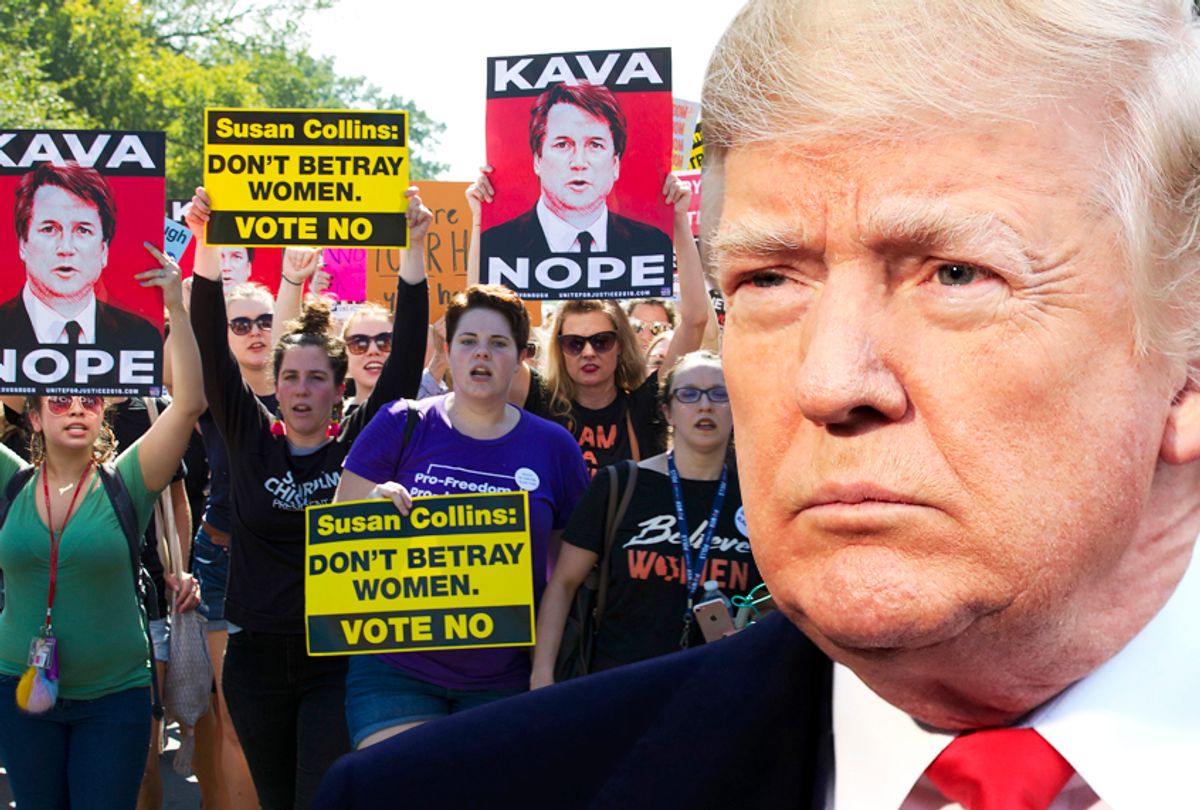More than a fortnight has passed since Brett Kavanaugh joined the Supreme Court, but the political reverberations of his heated confirmation battle are still being felt in the 2018 midterm elections.
Thirty-five percent of Americans said that the Kavanaugh confirmation hearing would make them more likely to vote for a Democratic congressional candidate and 27 percent said it would make them more likely to vote for a Republican congressional candidate, according to a recent USA TODAY/Suffolk University Poll. A plurality, 37 percent, said that the Kavanaugh confirmation hearings weren't likely to impact their vote one way or the other — but that still means that roughly five out of eight voters said that it would impact their electoral decision.
There was a notable gender divide in the poll's findings. Women were more likely to support a Democrat than a Republican because of the hearings by 12 percentage points. For men, it only made them more likely to support a Democrat by three percentage points.
The divide was similarly sharp when it came to how voters feel about Kavanaugh being on the bench. Thirty-three percent of those surveyed said that Kavanaugh's confirmation made them "angry," while 26 percent said that they were "delighted" with the outcome. Similarly, 45 percent said that Kavanaugh's confirmation is a "bad thing" and only 35 percent said that it was a "good thing." Only six percent of those surveyed said that his confirmation to America's most powerful court "doesn't matter one way or the other."
Despite concerns that Kavanaugh's confirmation would delegitimize the court, the survey found that 55 percent of respondents had a favorable impression of the Supreme Court, with only 25 percent saying they did not. This means that Americans trust the Supreme Court more than the president, Congress, the media and both major political parties.
After Kavanaugh was confirmed, Salon spoke to Harvard law professor Laurence Tribe about the impact that his controversial hearings would have on the perception that the bench is above partisan politics.
"I think it’s used a lot of capital in the interim and I think, now, the likelihood that the court could be a respected institution if Kavanaugh, despite everything we know, were confirmed is pretty low," Tribe told Salon. "I do agree with you that people should get over that myth that the court is wholly apolitical, because it has always been a part of politics. Justices are selected in a political way. But the court has transcended the most extreme versions of partisan politics. Nobody has ever been confirmed on the court with a kind of promise to get back at those who made the road to confirmation difficult. We have in this case, at least one justice who can’t give a fair shake by his own acknowledgment to many of the groups that appear before the court in well over half the cases that are of any real importance."

Shares